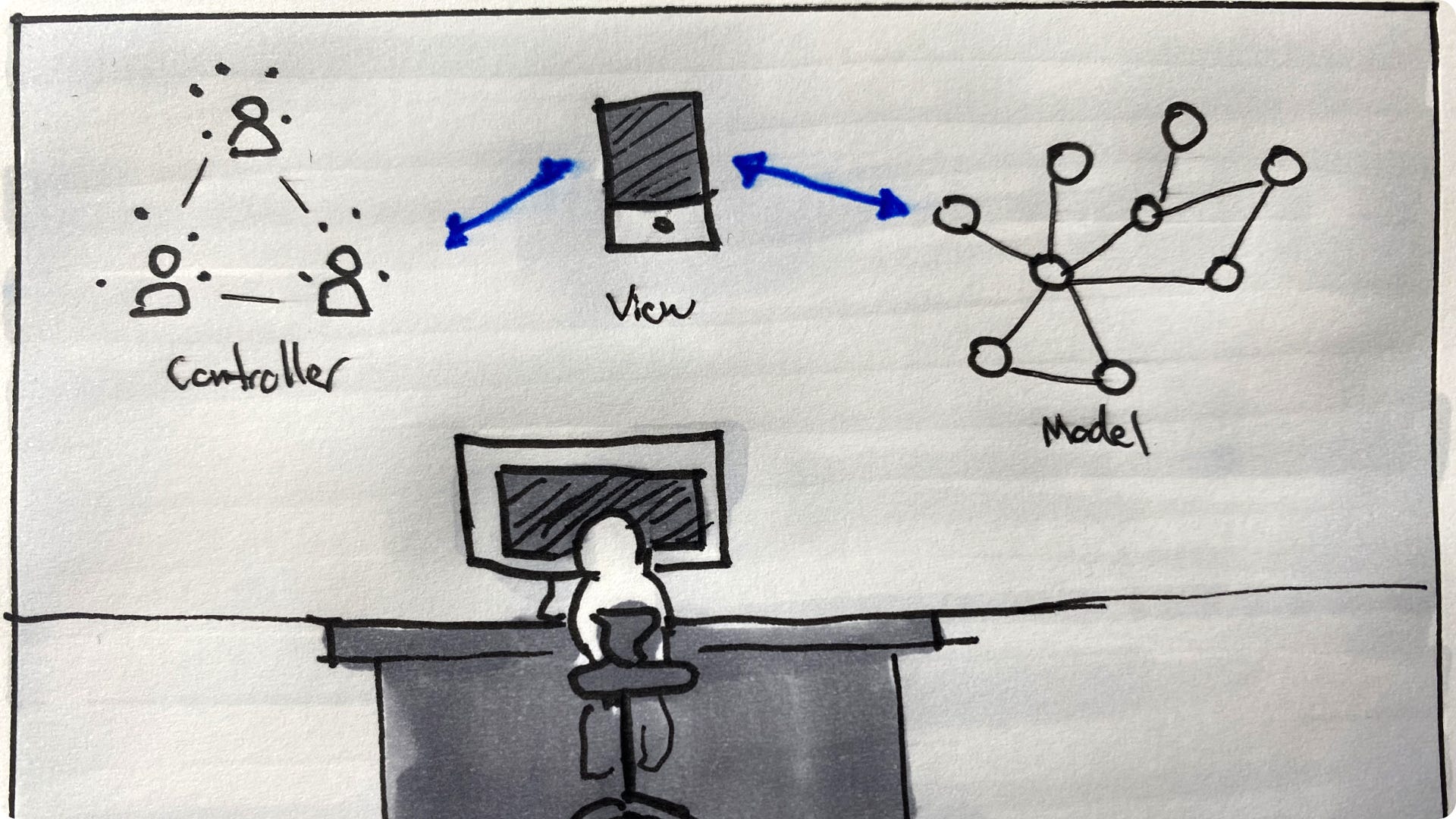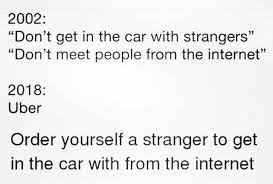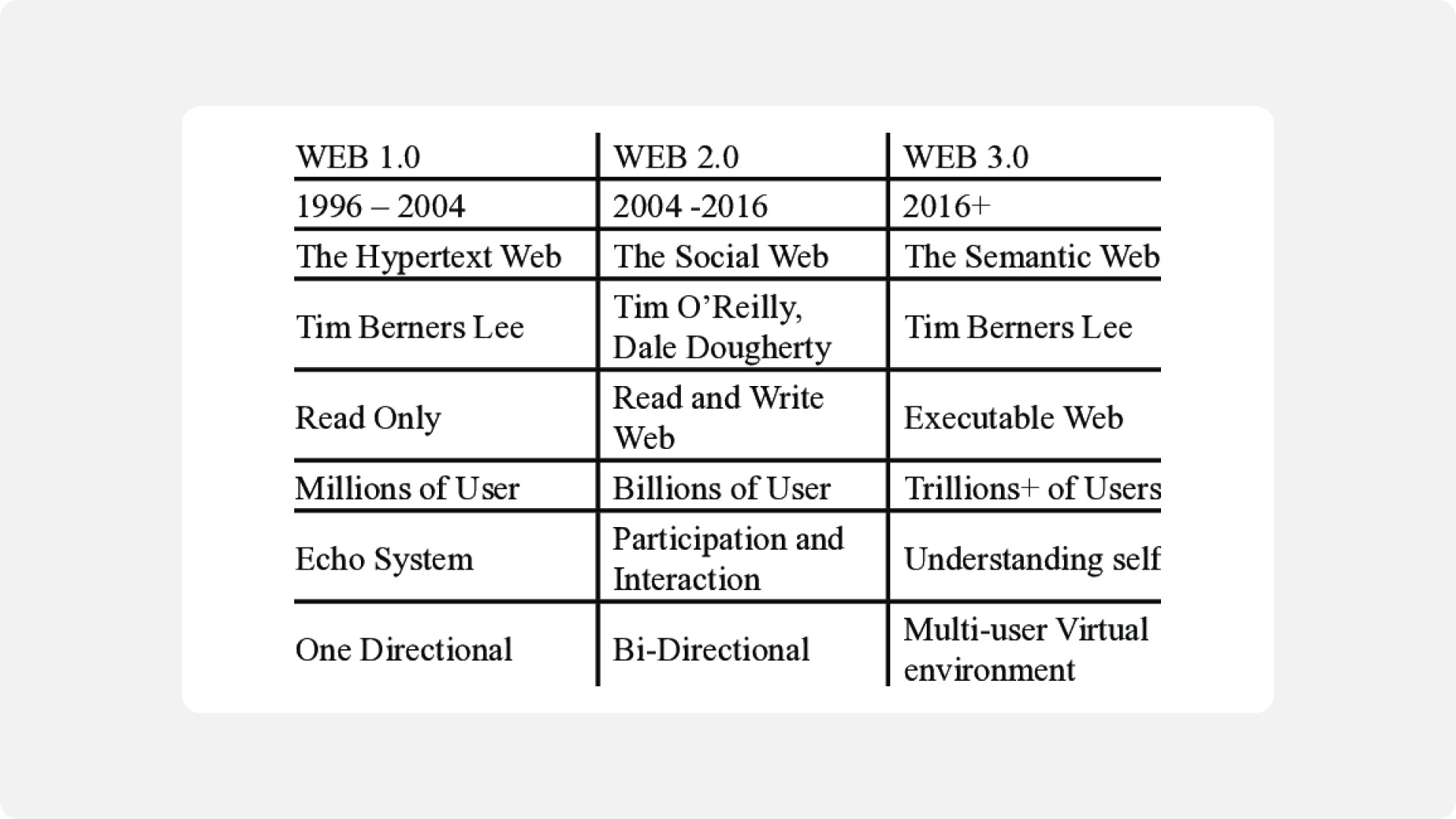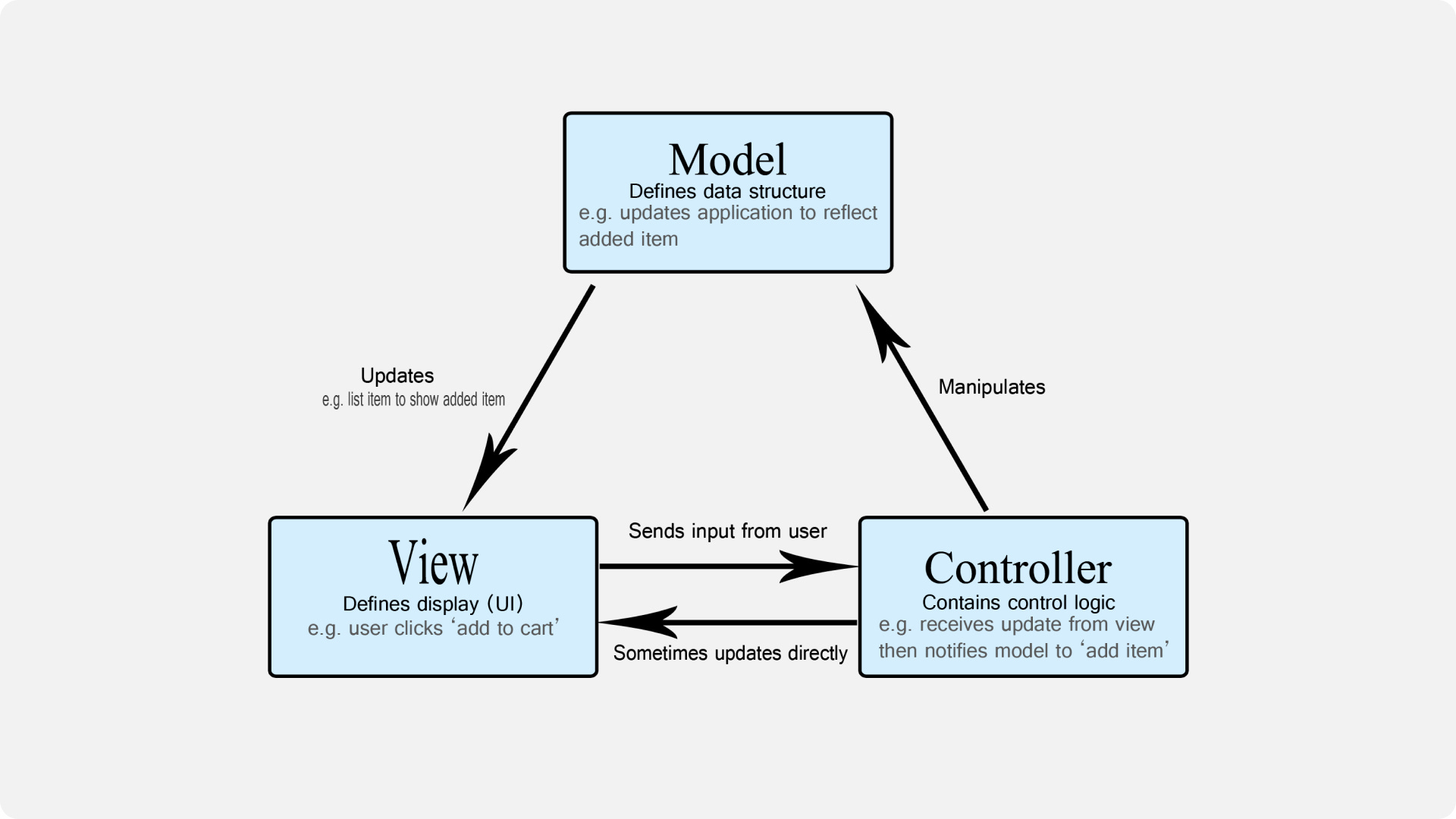Proof of Concept - What's Exciting About Web 3.0
What's Exciting About Web 3.0Issue 47: The next phase of the internet is independence from big data and monoliths
This weekend is Independence Day in the United States and I'm swapping the Joey Banks Weekend for a Joey Chestnut Weekend. Before I sit by the pool and barbeque, I want to talk about the independence I hope the next stage of the internet will bring—a decentralized Web that brings back some of the elements of Web 1.0 that made it special. I want the internet to get a little weird again. As a geriatric millennial, I grew up before the internet was mainstream and avaiable for the masses. The first time I heard about what’s known as the Information Superhighway was in elementary school. During a show-and-tell, a classmate shared a letter forged from the high resolution of a dot matrix printer. He shared something called "electronic mail" that he received from then-President Bill Clinton. What? Did he send the President of the United States a letter over a computer? How? Apparently, he used something on his computer called a modem and called the internet. Web 1.0: My teenage phaseIn many ways, I grew up with the internet. My brother and I would get on our Gateway 2000 computer to build websites using Microsoft Frontpage and Dreamweaver. Of course, we’d publish our sites on Geocities. This blazed a path for my interest in creating on the web. One Christmas, my parents gave us a second phone line so we could call the internet any time we wanted; so many lost battles in Command & Conquer: Red Alert because of Mom picking up the phone. This was like Prometheus gifting humanity fire. I was immersed in what will be known as Web 1.0—the era of the static web. Most of my activities as a teen were chatting with friends on ICQ, playing Quake Team Fortress on GameSpy, and browsing internet forums to learn web design. Web 2.0: throwing the screen names away and the era of corporate walled gardensDuring college, I visited a friend in San Diego. He told me about this new website that would help us to stay connected called MySpace. I remember my first reaction to this...people can see my real name on the internet? Several months later, when visiting a friend at another college, he told me about this website called The Facebook. People at his school were using it to connect to other people on campus. We didn't have The Facebook at the small college I attended so kept using MySpace. If Web 1.0 was a lot about static expression, Web 2.0 was the dynamic web that enabled high-volume data, social, and more web applications. Web 3.0: fixing what we messed up and breaking it apartIn the early 2010s I was living in New York City and having a crush on everyone's Tumblr blog. In 2014, one of my best friends visited and told me about a new interest of his, mining cryptocurrencies. We've known each other since we were about 10 years old and grew up exploring the internet together. In fact, he built this amazing pro wrestling site on Angelfire that would let you vote if you prefer WWF, WCW, or the emerging ECW (the E is for Extreme). We started mining this coin called Dogecoin, a cryptocurrency based on this adorable Shiba-Inu. Instead of storing it on the internet, it was stored on this wallet.dat file. I was confused...storing locally, not on the internet? I thought we had cloud storage for this. There was this new web app called Coinbase at the time that was trying to solve this problem. Though the term Web 3.0 has been around for a while, it's only shifting to mainstream now. What I'm most excited about in Web 3.0 is the omnidirectional experience it'll bring; no longer person and big application but a network of applications and data models. My hope for Web 3Web 3 will bring a better version of Model, View, Controller (MVC). If you're not familiar with MVC, it's the conventional pillars of building software. Conventionally, MVC is often coupled together in the same application. One of the best writings I've read about Web 3 is Ruben Verborgh's article "Paradigm shifts for the decentralized web" (huge thanks to my friend Joe for sharing with me). Verborgh talks about three very powerful considerations. 1. End users become data controllers. This is the most well-known decentralization aspect: we store our data in places of our choice, which improves privacy and controlWe got drunk on data excess in 2.0. What needed hundreds of zip disks can now be stored on the cloud at a high resolution. You can store everything, and that’s the problem. When Amazon Web Services (AWS) goes down, the majority of the web goes down. I believe personal data architecture and owning your data will be crucial for the next years of the Web. 2. Apps become views. As apps become decoupled from data, they start acting as interchangeable views rather than the single gateway to that data.As I said during try!Swift in 2017, reality is the world's biggest view controller; not in the real world but virtually. I'm a huge fan of John Palmer and he gave a great talk at Figma Config on Spacial Software which expands on this so much better. His articulation of bodies and objects makes the world different from contained interfaces. Apps becoming views has a huge implication on technologies like Augment Reality but also daisy chaining different apps to curate an experience. The idea of apps being decoupled from data and controller 3. Interfaces become queries. Data will be distributed across highly diverse interfaces, so sustainable apps need declarative contracts instead of custom data requests.Imagine building a design system where the properties and attributes are stored on a blockchain instead of the tool itself. Right now, if I create a design in Figma, it needs to get translated to a different style system in code. Now let's say all design tools have the same style system and they are informing one another. This reduces so many unnecessary steps to design, build, and ship software. Essentially, this is Model, View, Controller expanded in such a larger scope, no longer contained within the bounds of an application. Let's talk about some of these use cases for example: What I'm excited aboutVerborgh's has me hyped for the infinite possibilities. Each topic could be its own newsletter but I'd like to share at a high level four areas I'm bullish on. 1. Decentralized dataThere will be less trust in big tech companies which traded convenience in exchange for your personal data. The ability to run personal servers and blockchains will push a shift from everyone using AWS. Not everything needs to scale, and companies do not need access to all your data. I’m not saying the entire internet should be on a blockchain, but the concept of breaking data elements up is compelling. 2. Interoperability: OpenDoc on the blockchain?When people think Blockchain, their mental model is likely connected with Bitcoin, Dogecoin, and NFTs. It's so much more than that and the underlying technology has so much potential. 24 years ago, Apple explored an initiative called OpenDoc, a defunct multi-platform software componentry framework standard created by Apple in the 1990s for compound documents. Imagine taking a Markdown file stored locally and you're able to bind it to other documents such as Notion, Dropbox Paper, or Google docs. Instead of copying/pasting and creating a duplicate, it has the same origin as to where you created it. This enables originality, attribution, and the ability to remix. Another use case is storing design attributes on the blockchain and allowing reuse across multiple tools. Right now, I have to define colors in every software I use. It's the same hex value from Figma, Webflow, and Xcode. By storing attributes opens the possibility of being interoperable between software. 3. Better attribution, origin, and evolutionThere is currently a strike on the video platform TikTok with black creators. It's an all-too-familiar story of black creators having their original content being culturally appropriated or stolen. What if you could NFT a dance move? Imagine being able to store the original video of a dance move on a public ledger as the point of origin. When someone appropriates or copies it, there is still lineage to the original work. 4. More equitable participation on the webI believe every human being should have the right to maximize their creativity and expression, whether they are a hobbyist or professional. The industry is rather gating at the moment, and everyone should have access to the expression on the Web (this is probably not a surprise that I work at Webflow). We've heard a lot of the idea of retail investors with Robinhood, hobbyist software development can foster citizen developers. The need for professional software development will continue and play a huge role, but I love the idea of everyone having the means to express themselves. My optimistic look at the future of the WebDuring this weekend when people are reflecting regarding Canada Day and Independence Day, we think about the dark history. It's important to recognize those wrongdoings and reflect on where we as a collective of humans want to see the world go. Learning from the excess of Web 2.0, I am hopeful of where 3 (and 4, etc.) will go. We own the data, apps are the font end experiences, and a community of humans are the query of experiencing this. Happy Decentralization Day. Not sponsoredA new section in the newsletter. Sharing what I love independently and not related to any sponsorship.
LinksHyperlinks I experience this week I found interesting.
Design jobsThese are not sponsored and roles shared with me
Enjoy this newsletter? Please consider sharing it with friends, or subscribing if you haven’t already. I really appreciate it! Sincerely, DH If you liked this post from Proof of Concept, why not share it? |
Older messages
Go For Broke: Create Like You Have No Money
Sunday, June 27, 2021
Issue 46: How less can create more
Welcome to Proof of Concept!
Saturday, June 26, 2021
Thank you for signing up for Proof of Concept
You Might Also Like
This Unusual Color Palette Is Making a Comeback
Tuesday, March 11, 2025
View in your browser | Update your preferences ADPro Having a Moment Over the last few years, Piero Portaluppi's 1930s Villa Necchi (you know it from Luca Guadagnino's I Am Love) has become the
#498: Usability & UX
Tuesday, March 11, 2025
New books for UX designers, practical guides and how to deal with placeholders and text labels. Issue #498 • Mar 11, 2025 • View in the browser Smashing Newsletter Aluu Smashing Friends, We've just
New Email Templates, Postcards & Slides Updates
Monday, March 10, 2025
Both our email builder and website builder have been updated.
🐺 How to write better newsletters
Monday, March 10, 2025
A free video walkthrough with examples. ͏ ͏ ͏ ͏ ͏ ͏ ͏ ͏ ͏ ͏ ͏ ͏ ͏ ͏ ͏ ͏ ͏ ͏ ͏ ͏ ͏ ͏ ͏ ͏ ͏ ͏ ͏ ͏ ͏ ͏ ͏ ͏ ͏ ͏ ͏ ͏ ͏ ͏ ͏ ͏ ͏
Accessibility Weekly #439: Values
Monday, March 10, 2025
March 10, 2025 • Issue #439 View this issue online or browse the full issue archive. Featured: Values "Let's talk about the disconnect within the accessibility scene/industry/community and
Business as a platform
Sunday, March 9, 2025
Issue 236: Applying business to your craft ͏ ͏ ͏ ͏ ͏ ͏ ͏ ͏ ͏ ͏ ͏ ͏ ͏ ͏ ͏ ͏ ͏ ͏ ͏ ͏ ͏ ͏ ͏ ͏ ͏ ͏ ͏ ͏ ͏ ͏ ͏ ͏ ͏ ͏ ͏ ͏ ͏ ͏ ͏ ͏ ͏ ͏ ͏ ͏ ͏ ͏ ͏ ͏ ͏ ͏ ͏ ͏ ͏ ͏ ͏ ͏ ͏ ͏ ͏ ͏ ͏ ͏ ͏ ͏ ͏ ͏ ͏ ͏ ͏ ͏ ͏ ͏ ͏ ͏ ͏ ͏ ͏ ͏ ͏
A Guide to Timetravels
Sunday, March 9, 2025
Our past and present selves have never been separate entities but rather interwoven narrators. ͏ ͏ ͏ ͏ ͏ ͏ ͏ ͏ ͏ ͏ ͏ ͏ ͏ ͏ ͏ ͏ ͏ ͏ ͏ ͏ ͏ ͏ ͏ ͏ ͏ ͏ ͏ ͏ ͏ ͏ ͏ ͏ ͏ ͏ ͏ ͏ ͏ ͏ ͏ ͏ ͏ ͏ ͏ ͏ ͏ ͏ ͏ ͏ ͏ ͏ ͏ ͏ ͏
The New Kitchen Trends on Our Radar
Thursday, March 6, 2025
View in your browser | Update your preferences ADPro Kitchen Confidential We at AD PRO see the kitchen as a bellwether for the rest of the home—a place where technology stays a couple of steps ahead,
🐺 How to kick start your PR efforts.
Wednesday, March 5, 2025
Lessons from a veteran publicist. ͏ ͏ ͏ ͏ ͏ ͏ ͏ ͏ ͏ ͏ ͏ ͏ ͏ ͏ ͏ ͏ ͏ ͏ ͏ ͏ ͏ ͏ ͏ ͏ ͏ ͏ ͏ ͏ ͏ ͏ ͏ ͏ ͏ ͏ ͏ ͏ ͏ ͏ ͏ ͏ ͏ ͏
How Rita Konig Gets Clients to Take Risks
Tuesday, March 4, 2025
View in your browser | Update your preferences ADPro It has been a career-defining few years for Rita Konig. First there was the British interior designer and author's Create Academy course, which








